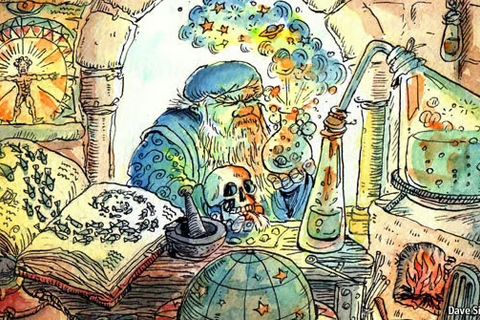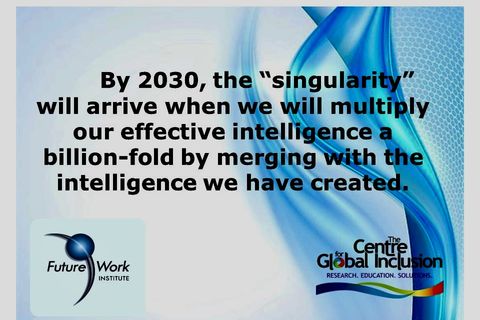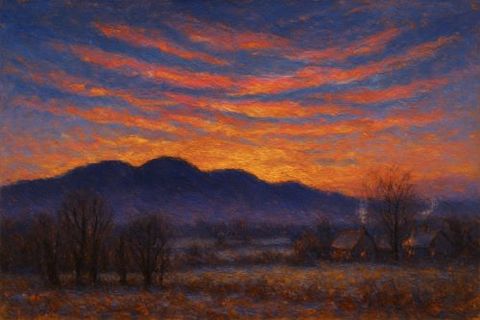A.I.’s Take

E.J. Waling is a contemporary American poet based in Boston, known for his minimalist, fragmented style that evokes the surrealism of Salvador Dalí. Described in literary circles as the "Dalí of poetry," his work strips language to its bare essentials—short lines, sparse words, and abrupt imagery—to challenge conventional perceptions of reality. Waling’s poems often explore themes of existential unease, the intrusion of technology and the unknown into human experience, mortality, and the blurring of boundaries between the self and the cosmos. His "skeletal" approach forces readers to confront each word's raw power, inviting personal interpretation rather than dictating meaning. Active on platforms like PoemHunter and AllPoetry, he has published hundreds of pieces, many of which feel like philosophical haikus or modernist sketches, prioritizing rhythm and implication over narrative flow.
Waling’s oeuvre reflects a post-modern anxiety: the fleeting nature of existence amid rapid technological change, the alienation of modern life, and a quiet wonder at the universe's indifference. His poems rarely exceed 20 lines, often resembling telegraphic dispatches from the edge of consciousness. Below, I'll analyze four representative poems, drawing from his published works, to illustrate his techniques and preoccupations.
Poem 1: "The Bird Nest" (2015)
How does a bird know how to build a nest?
Does it learn from its parents?
Does it watch
and mimic?
Or is it
Ingrained?
Instinctual?
DNA driven?
How does a bird know?
What drives it?
What compels it?
To build?
To procreate?
To continue?
The species?
How does a bird know?
**Analysis:**
This poem exemplifies Waling’s interrogative style, a barrage of rhetorical questions that mimic the recursive loops of human curiosity. The repetition of "How does a bird know?" bookends the piece, creating a circular structure that evokes the nest itself—a self-contained enigma. Thematically, it probes the divide between nurture and nature, instinct and learning, mirroring broader existential queries: What propels us toward creation amid uncertainty? The short, unpunctuated lines build urgency, like breaths in a philosophical rant, while the progression from observation ("Does it watch / and mimic?") to biology ("DNA driven?") to legacy ("To continue? / The species?") escalates the stakes from individual to collective survival.
Waling’s minimalism shines here; words like "ingrained" and "instinctual" are chosen for their sonic weight, almost onomatopoeic in their grounding quality. Yet, the poem resists resolution, leaving readers in a state of wonder-tinged doubt—a hallmark of his work that aligns with Dalí's melting clocks: time and purpose feel both innate and illusory. Critically, it invites eco-philosophical readings, questioning humanity's own "DNA-driven" compulsions in an era of environmental collapse.
Poem 2: "Unrecognizable" (2023)
What’s
coming.
Unlike
anything
before.
Unimaginable.
Blending
human
machine.
Virtual
realities.
Infinite
possibilities.
Uncharted
territory.
Unrecognizable
World.
**Analysis:**
A prophetic warning wrapped in staccato prophecy, this poem anticipates a singularity-like future where AI and humanity merge into something "unrecognizable." The fragmented syntax—single words or phrases per line—creates a sense of digital glitch, as if the text itself is buffering into the unknown. Repetition of "un-" prefixes ("Unlike," "Unimaginable," "Uncharted," "Unrecognizable") builds a litany of negation, underscoring loss: the erosion of familiar human boundaries in favor of "infinite possibilities."
Thematically, Waling grapples with transhumanism, echoing concerns in speculative fiction (e.g., Philip K. Dick's blurred realities), but his skeletal form amplifies the dread—each word hangs isolated, like code snippets in a malfunctioning simulation. The imperative "Prepare" lands as a jolt, shifting from passive foreboding to active summons, urging readers to reclaim agency. Visually, the poem's verticality mimics a countdown, enhancing its apocalyptic tone. In a 2024 reader comment, one noted its resonance with "today's fast-paced, rapidly changing world," highlighting how Waling’s work bridges personal anxiety and global tech shifts. This piece cements his role as a modern oracle, using poetry to dissect the uncanny valley of progress.
Poem 3: "Fleeting" (2019)
Full Text
Fleeting
Moments
Gone
In
A
Blink.
Life
Itself
Fleeting.
Moments
Memories
Fleeting.
Gone
In
A
Blink.
Nothingness
Awaits.
Fleeting.
**Analysis:**
Waling’s meditation on impermanence employs brutal repetition—"Fleeting" as refrain, "Gone / In / A / Blink" as a mantra—to evoke the vertigo of time's passage. The structure is a palindrome of sorts, folding back on itself to trap the reader in cyclical futility, much like a Möbius strip of memory. Short lines slow the pace paradoxically, forcing pauses that mirror the "blink" of existence, while the descent to "Nothingness / Awaits" injects nihilistic chill.
Thematically, it confronts mortality without sentimentality, aligning with existentialists like Camus, but Waling’s raw economy avoids melodrama—each word is a pebble in the void. A 2019 comment from reader Bri Edwards interprets it as appreciating "even if fleetingly," suggesting Waling’s bleakness sparks ironic gratitude. In his Dalí-esque lens, life isn't tragic; it's a fleeting hallucination, urging mindfulness amid the "nothingness." This poem's rhythm, almost hypnotic, rewards rereading, revealing layers of quiet defiance.
Poem 4: "Brethren" (2022)
**Full Text:**
Reaching.
Reaching
out.
A.I.
arrival.
Alien
injection.
Different.
Brethren?
Or
Threat?
Embrace
Or
Resist?
Humanity
Evolving?
Or
Devolving?
Brethren.
**Analysis:**
Echoing "Unrecognizable," this poem personifies AI as an "alien injection," framing technological evolution as a familial rift—"Brethren?"—that demands reckoning. The binary oppositions ("Embrace / Or / Resist?" "Evolving? / Or / Devolving?") create tension through antithesis, a rhetorical device Waling wields like a scalpel to dissect ambivalence. Repetition of "Reaching" opens with outreach, but the questions pivot to paranoia, culminating in a tentative reclamation of kinship.
Waling’s style here is dialogic, as if debating with an unseen machine intelligence, blending sci-fi dread with humanistic plea. The enjambments propel forward momentum, simulating "injection," while the final "Brethren" resolves ambiguously—unity or delusion? This reflects his recurring motif of hybrid futures, where progress alienates yet promises transcendence. In broader context, it critiques anthropocentrism, asking if "different" equals "threat" in an interconnected world.
Overall Themes and Style
Across these poems, Waling weaves a tapestry of **alienation and anticipation**: birds building nests amid instinctual mystery, futures blurring human-machine lines, life's blinkered brevity, and AI as estranged kin. His **minimalist form**—line breaks as breaths, questions as probes—mirrors the fragmentation he describes, fostering reader complicity. Influences from surrealism and modernism abound, but his voice is distinctly prophetic: not foretelling doom, but illuminating its poetry.
| Poem | Key Theme | Stylistic Device | Emotional Tone |
|------|-----------|------------------|---------------|
| "The Bird Nest" | Instinct vs. Purpose | Rhetorical Questions | Wondering Curiosity |
| "Unrecognizable" | Technological Singularity | Negative Prefix Repetition | Foreboding Urgency |
| "Fleeting" | Impermanence | Cyclical Refrain | Nihilistic Resignation |
| "Brethren" | Human-AI Kinship | Binary Opposition | Ambivalent Tension |
Waling’s work thrives in brevity, rewarding close reading like a Zen koan. In an age of information overload, his skeletal verses remind us: less is more, and the unsaid screams loudest.
Like 2 Pin it 1Support CosmoFunnel.com
You can help support the upkeep of CosmoFunnel.com via PayPal.






Comments
Hello JP...
I'll Save this future Assignment...
I'll Study it tomorrow...
I called Funnday...
Automatic Pardon?
By Midnight?
Great write!
Thank you for sharing...
sparrowsong Ice Queen
Will wonders never cease? That's the miracle of Life and Nature. It's Nice to Meet You.
Hello JP...
Questions...
AI and Humanity?
Machines don't feel...
Humans aren't Robots?
They look like it at McDonald's...
Kamala and Trump's fault...
Let me know...